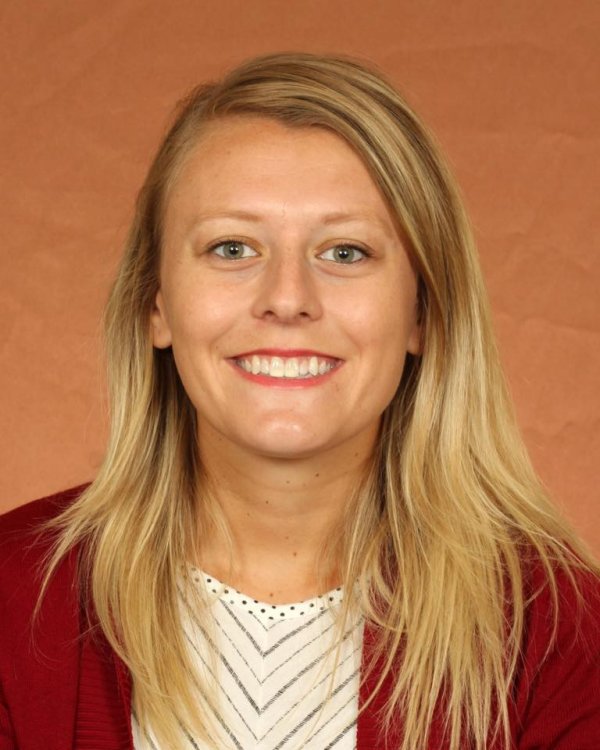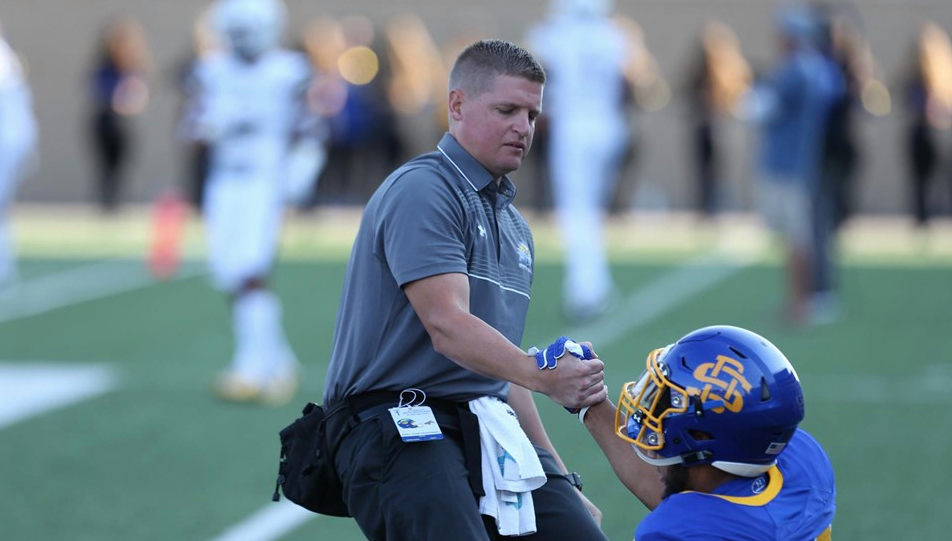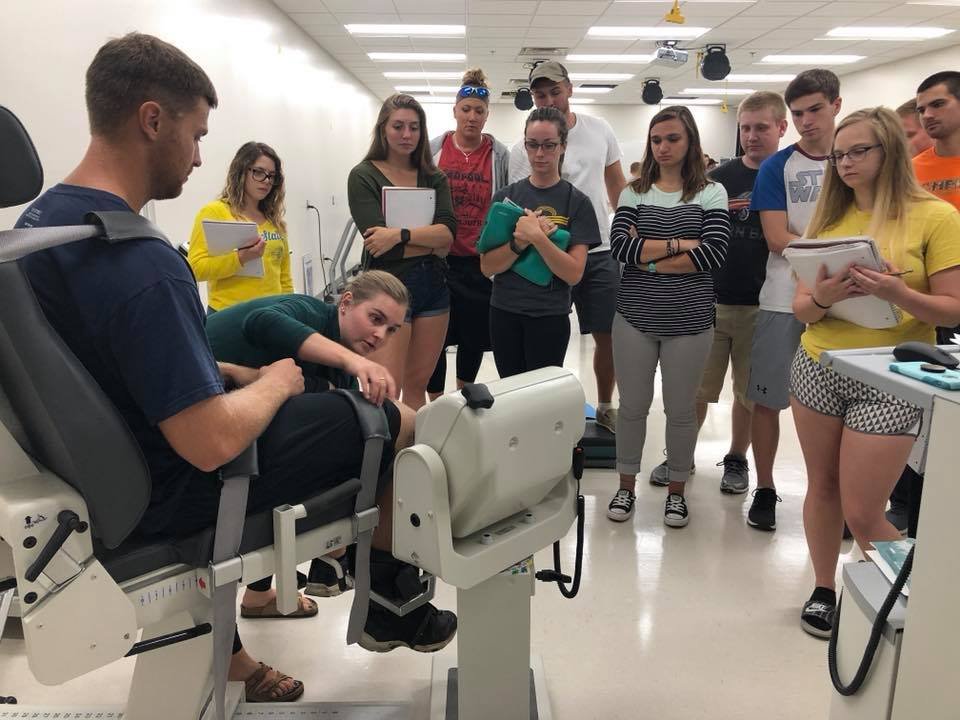The primary objective of a master's (M.S.) degree program is to provide a scholarly approach to the academic subject matter content in athletic training, dietetics, nutrition, exercise science or sport and recreational studies introduced during the baccalaureate education. The primary objective of a doctor of philosophy (Ph.D.) program is to build upon the experience obtained during the master's program and foster student independence in research and/or teaching.
Program Details
Accredited by the Commission on Accreditation of Athletic Training Education, the M.S. in Athletic Training program is comprised of 57-60 credits and offers a diverse array of clinical sites to gain experience. Learn more about M.S. Athletic Training.
Offered online through the Great Plains Interactive Distance Education Alliance (GPIDEA), this degree consists of 36 credits and is only available for those credentialed as Registered Dietitian Nutritionists (RDN) or those that are RDN-eligible. Learn more about M.S. Nutrition and Dietetics.
The Sport and Recreation Administration program consists of 32-36 credits and prepares students to become dynamic leaders in intercollegiate athletics as well as campus and community recreation. The curriculum and internship experiences will educate students in management, marketing, communications, facilities, finance, ethics and legal issues, research and much more. Students graduating from the program will be equipped with a skill set that can be directly applied to a wide range of exciting career possibilities. Learn more about M.S. Sport and Recreation Management.
An integration between the fields of nutrition and exercise science, the M.S. in Nutrition and Exercise Science program is made up of 30-35 credits and prepares students to be skilled in professional practice/education and/or future research in the health sciences. Students may specialize in either nutritional sciences or exercise science. Learn more about M.S. Nutrition and Exercise Sciences.
The Ph.D. in Nutrition and Exercise Sciences provides students the opportunity to begin their development as an independent researcher. Students pursuing a doctoral degree typically seek employment in higher education, industry or government. This doctoral program consists of 60 credits. Learn more about Ph.D. Nutrition and Exercise Sciences.
This unique graduate certificate provides expertise in a job market that is desperate for trained professionals in the prevention of childhood obesity. The program will expose students to a variety of disciplines involved in the prevention of childhood obesity, allow students the opportunity to design childhood obesity prevention initiatives, and prepare students to conduct transdisciplinary research on the behavioral, social, biological and environmental causes of childhood obesity. Faculty from Nutrition, Exercise Science, Early Childhood Education and Nursing work collaboratively with SDSU Extension to implement the TOP graduate certificate program. Students will obtain a TOP program certificate upon completion of the requirements for both the certificate (9-10 credits) and the Masters or Doctoral degree from their respective college.






